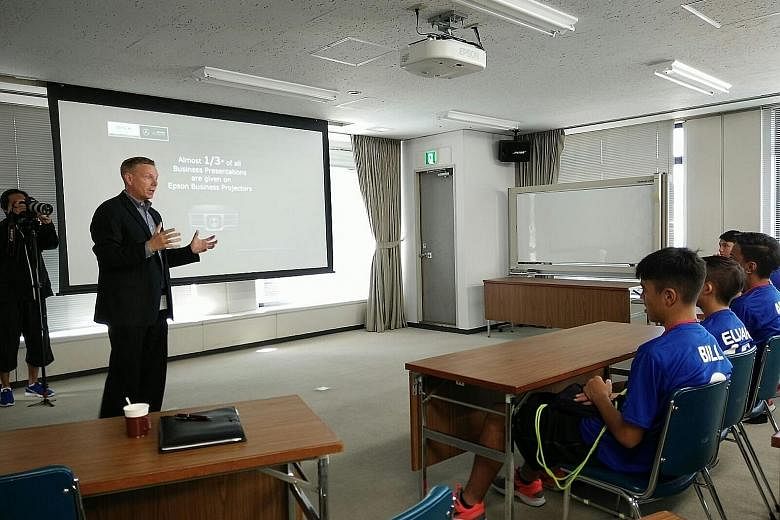Asian football may play second fiddle to its European counterpart in terms of popularity, but the possibility of it going global should not be overlooked, according to Ian Cameron, general manager (global brand and communications) of Epson.
And there is a way to advertise Japan's bustling J-League to a worldwide audience - through the country's distinctive cuisine like raw horse meat or even bee larvae.
Cameron made this point when he spoke on the company's global sporting sponsorships yesterday at Epson's headquarters in the Japanese city of Matsumoto. The company is a sponsor of the Asian Football Confederation (AFC).
Cameron said: "It is a big challenge for the AFC to go global with the immense popularity of the European leagues, especially the English Premier League, in our region. But we cannot dismiss this possibility.
"The J-League, for one, is putting in its best efforts to be known on the world stage, starting with being the top league in Asia."
Cameron feels that in trying to achieve that goal, the J-League has been very focused on taking even the smallest steps that are not totally related to football.
He explained: "For example, every football club in Japan is from a specific region, and each region has a specialty cuisine.
"The J-League tries ways to promote these cuisines - linking each of them with a specific club - and through exports, it hopes to gain recognition for the clubs globally."
Matsumoto, for instance, is famous for exotic dishes like basashi (raw horse meat) and hactinoko (sweet bee larvae).
Cameron added that many Japanese organisations are still very conservative even today but the J-League is forward-looking in terms of its emphasis on youth development.
Other Asian leagues can also learn from that aspect, and in turn there will always be exciting young players who can boost the popularity of Asian football.
"The AFC may not be as big yet but there is always potential for Asian football to grow. That is why we invest in the AFC which is also in line with our vision of having more sporting partnerships," he said.
Besides the AFC, Epson is the sponsor of English Premier League giants Manchester United and Formula One world champions Mercedes.
The Japanese electronics giant is also the shirt sponsor of Japanese second-tier football club Matsumoto Yamaga FC, who are hosting six Singapore Under-15 and U-14 players for a training attachment this week.
Cameron added: "We want Epson to have link-ups with sporting names because we believe there are a lot of good values that we can learn from sports - teamwork, commitment, passion and leadership.
"We want to create a positive image for our brand."
And for the Epson brand, it may soon be projected all over the world as it strives to help Asian football attract more eyeballs.
Raw horse meat, anyone?

